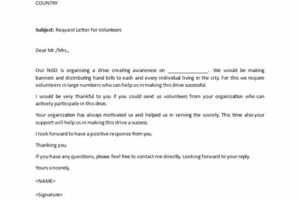Table of Contents
Speech volunteer work involves helping individuals improve their communication and language skills. Volunteers assist in speech therapy sessions, conduct language assessments, and provide support to individuals with speech disorders. This rewarding volunteer opportunity allows you to make a positive impact on people’s lives by helping them overcome communication challenges.
Are you passionate about making a difference in your community? Do you have a knack for public speaking and a desire to help others find their voice? If so, then speech volunteer work may be the perfect avenue for you to explore. By volunteering your time and expertise, you can assist individuals of all ages in improving their communication skills, boosting their confidence, and ultimately empowering them to express themselves effectively. Whether it’s mentoring students, coaching professionals, or supporting individuals with speech impairments, there are a myriad of opportunities to lend a helping hand and make a lasting impact. In this article, we will delve into the world of speech volunteer work, examining its benefits, the various roles you can take on, and how you can get involved. So, let’s embark on this rewarding journey together and discover how your passion for speech can create positive change in the lives of others.
Introduction
Speech volunteer work involves helping individuals improve their communication and language skills. This type of volunteering is crucial as it assists people in overcoming speech disorders, enhancing their confidence, and enabling them to express themselves effectively. Speech volunteers play a vital role in the lives of those who require assistance with their speech, whether due to developmental delays, physical impairments, or other factors. By dedicating their time and expertise, these volunteers contribute to making a positive impact on individuals’ lives.
The Importance of Speech Volunteer Work
Speech volunteer work is of great importance as it provides individuals with the necessary support to improve their communication abilities. Effective communication is essential for personal and professional success, and speech volunteers help bridge the gap for those facing challenges in this area. By working with individuals to develop their speech and language skills, volunteers enable them to better express their thoughts, feelings, and needs, which ultimately leads to improved self-confidence and overall well-being.
Types of Speech Volunteer Work
There are various types of speech volunteer work that individuals can engage in. These include:
1. Speech Therapy Assistance
Volunteers can assist licensed speech therapists by providing support during therapy sessions. They may help with activities, exercises, and provide encouragement to individuals undergoing speech therapy.
2. Conversation Partners
Volunteers can act as conversation partners for those looking to practice their speech skills. By engaging in regular conversations, individuals can improve their fluency, vocabulary, and overall communication abilities.
3. Reading Buddies
Volunteers can read aloud to individuals who struggle with speech or language. This activity not only enhances their listening skills but also helps them develop word recognition and pronunciation.
4. Event Support
Volunteers can assist in organizing events related to speech and communication. They may help with logistics, coordination, and ensure that participants have a positive experience.
Benefits of Speech Volunteer Work
Engaging in speech volunteer work offers numerous benefits for both the volunteers and the individuals they assist:
1. Personal Growth
Volunteering allows individuals to develop empathy, patience, and interpersonal skills. It provides an opportunity for personal growth and a deeper understanding of the challenges faced by others.
2. Professional Development
For those considering a career in speech therapy or a related field, volunteering provides valuable hands-on experience and exposure to different aspects of speech therapy. It can enhance resumes and serve as a stepping stone towards future professional opportunities.
3. Making a Difference
By volunteering, individuals directly impact the lives of those in need, helping them overcome communication barriers and fostering their personal growth. The satisfaction derived from making a positive difference is immeasurable.
4. Building Relationships
Volunteering often leads to meaningful connections with individuals who share similar interests and passions. It offers an opportunity to build a network within the speech therapy community and connect with professionals in the field.
How to Get Involved in Speech Volunteer Work
If you are interested in engaging in speech volunteer work, here are some steps to get started:
1. Research Local Organizations
Look for local organizations that focus on speech therapy or communication disorders. Reach out to them to inquire about volunteer opportunities and their requirements.
2. Attend Volunteer Orientations
Many organizations offer volunteer orientations to provide an overview of their programs and the type of support they require. Attending these sessions will help you gain a deeper understanding of the organization and its mission.
3. Apply and Complete Background Checks
Once you have identified an organization, complete their volunteer application process, which may include background checks, interviews, and reference checks. These measures ensure the safety and well-being of the individuals receiving assistance.
4. Participate in Training
Some organizations may require volunteers to undergo training sessions to familiarize themselves with various speech therapy techniques, tools, and protocols. Training equips volunteers with the knowledge and skills necessary to assist effectively.
5. Dedicate Your Time
Commit to a regular schedule and show up consistently. Individuals relying on speech volunteers benefit from continuity and building rapport with their volunteers.
Conclusion
Speech volunteer work is a valuable contribution to society as it helps individuals overcome speech and communication barriers. By dedicating their time and expertise, speech volunteers make a significant impact on the lives of those in need. They enable individuals to develop their communication skills, enhance their self-confidence, and foster personal growth. Engaging in speech volunteer work not only benefits the individuals receiving assistance but also provides volunteers with personal and professional development opportunities. If you have a passion for helping others and improving lives, consider getting involved in speech volunteer work today.
Introduction to Speech Volunteer Work
Speech volunteer work involves actively participating in events and activities that aim to promote effective communication and public speaking skills. Volunteers play a crucial role in helping individuals overcome their fear of public speaking, develop their confidence, and improve their speaking abilities. Through their generosity, volunteers contribute to the personal and professional growth of individuals in various communities.
Importance of Speech Volunteer Work
Engaging in speech volunteer work is of utmost importance as it provides an opportunity to empower others to express their ideas, opinions, and experiences effectively. Public speaking skills are essential in many spheres of life, such as academia, business, and social interactions. By volunteering, individuals can make a lasting impact on the lives of others by enhancing their communication skills and enabling them to succeed in their personal and professional endeavors.
Types of Speech Volunteer Work
Speech volunteer work encompasses diverse activities, including mentoring aspiring speakers, conducting workshops on public speaking techniques, organizing speech competitions, and offering speech therapy sessions for individuals with communication difficulties. Volunteers may also assist in coaching individuals preparing for presentations or speeches, providing constructive feedback, and supporting them throughout their journey of self-improvement.
Benefits of Speech Volunteer Work for Volunteers
Engaging in speech volunteer work not only benefits the individuals receiving assistance but also offers numerous advantages to volunteers themselves. By sharing their expertise, volunteers can enhance their own public speaking skills and refine their ability to deliver impactful presentations. Additionally, speech volunteer work allows volunteers to expand their network, gain valuable teaching and leadership experience, and contribute to the betterment of their communities.
Impact of Speech Volunteer Work on Participants
Participants of speech volunteer programs often experience transformative changes in their lives. They develop confidence in public speaking, learn effective communication strategies, and acquire the ability to articulate their thoughts clearly. The skills acquired through speech volunteer work enable participants to excel academically, advance in their careers, and become more effective advocates for the causes they believe in.
Challenges Faced in Speech Volunteer Work
While speech volunteer work is highly rewarding, it may also come with several challenges. Volunteers may encounter individuals with severe public speaking anxiety, language barriers, or learning disabilities, requiring patience, adaptability, and empathy. Additionally, organizing and coordinating events, securing resources, and managing diverse participant needs can pose logistical challenges that volunteers need to address effectively.
Resources and Training for Speech Volunteers
To ensure the success of speech volunteer programs, it is essential to provide volunteers with adequate resources and training. These resources may include educational materials, speech templates, access to online platforms, and training sessions on effective teaching and coaching techniques. Such support empowers volunteers to make a significant impact, equips them with the necessary tools, and enables them to deliver high-quality assistance.
Ways to Get Involved in Speech Volunteer Work
To engage in speech volunteer work, individuals can seek opportunities through local schools, community organizations, non-profit foundations, or Toastmasters clubs. By reaching out to these entities, individuals can express their interest in volunteering, attend training sessions, and participate as mentors or coaches. Social media platforms and online volunteer networks can also facilitate the connection between potential volunteers and organizations offering speech volunteer programs.
As a volunteer for speech work, I firmly believe that it plays a crucial role in empowering individuals and communities. The ability to effectively communicate one’s thoughts, ideas, and emotions is essential for personal growth, professional success, and social integration. Through volunteer work in speech-related activities, we can provide invaluable support to those who face challenges in expressing themselves verbally.
Here are some key points highlighting the importance of volunteer work in speech:
- Empowering individuals: Volunteer work in speech allows us to empower individuals who struggle with communication disorders or speech impediments. By providing them with appropriate resources, tools, and techniques, we can help build their confidence, enhance their communication skills, and enable them to participate actively in various aspects of life.
- Promoting inclusivity: Volunteer work in speech promotes inclusivity by creating an environment where everyone has equal opportunities to express themselves. By assisting individuals with speech difficulties, we contribute to building a more inclusive society that values and respects diverse forms of communication.
- Enhancing educational outcomes: Speech-related volunteer work in educational settings can significantly impact students’ academic performance. By offering support to students with speech challenges, we can help improve their language skills, comprehension abilities, and overall classroom engagement, thereby enhancing their educational outcomes.
- Facilitating professional success: Effective communication skills are vital for professional success. By volunteering in speech-related activities, we can equip individuals with the necessary skills to excel in job interviews, presentations, and other professional interactions. This, in turn, increases their employability and career prospects.
- Supporting mental well-being: Volunteer work in speech can have a positive impact on individuals’ mental well-being. Communication barriers can often lead to feelings of isolation, frustration, and low self-esteem. By providing support and guidance, we can help individuals overcome these challenges, improve their mental well-being, and enhance their overall quality of life.
In conclusion, volunteer work in speech is essential for empowering individuals, promoting inclusivity, enhancing educational outcomes, facilitating professional success, and supporting mental well-being. By dedicating our time and skills to this cause, we contribute to creating a more inclusive and communicative society where everyone has the opportunity to thrive.
Thank you for taking the time to visit our blog and learn more about speech volunteer work. We hope that you have found the information provided to be informative and inspiring. As advocates for effective communication, we believe that speech volunteer work plays a crucial role in empowering individuals, promoting inclusivity, and fostering personal growth.
Throughout this article, we have explored the various benefits and opportunities that speech volunteer work offers. From helping children with speech disorders gain confidence and improve their communication skills to supporting adults in overcoming public speaking anxiety, these volunteer opportunities can make a significant impact on the lives of those in need. By volunteering your time and expertise, you have the power to change lives and create positive change in your community.
As you consider getting involved in speech volunteer work, we encourage you to reflect on your own skills and interests. Whether you are a speech-language pathologist, a public speaking enthusiast, or simply someone who values the power of effective communication, there are numerous ways you can contribute. Reach out to local schools, community centers, or non-profit organizations to inquire about volunteer opportunities. Additionally, consider joining online communities or forums dedicated to speech volunteer work, where you can connect with like-minded individuals and gain valuable insights and resources.
In conclusion, speech volunteer work is not only an opportunity to give back to your community but also a chance to make a genuine difference in the lives of others. Through your dedication and support, you can help individuals overcome speech challenges, improve their communication skills, and ultimately enhance their quality of life. We encourage you to explore the various speech volunteer opportunities available and take that first step towards making a positive impact. Together, let’s empower individuals through the gift of effective communication.
Thank you once again for visiting our blog, and we hope that you continue to find inspiration and motivation in the world of speech volunteer work. Remember, your voice matters, and by sharing it with those in need, you can create lasting change.
Video Speech Volunteer Work
People also ask about Speech Volunteer Work:
What is speech volunteer work?
Speech volunteer work refers to volunteering opportunities where individuals contribute their time and skills to help others improve their speech and communication abilities. It can involve working with individuals who have speech disorders, language barriers, or difficulties expressing themselves verbally.
How can I get involved in speech volunteer work?
To get involved in speech volunteer work, you can:
- Reach out to local speech therapy clinics or organizations that provide speech-related services.
- Contact schools, community centers, or hospitals that may offer speech therapy programs.
- Join online platforms or websites dedicated to connecting volunteers with speech-related volunteer opportunities.
- Attend workshops, conferences, or training sessions to enhance your knowledge and skills in speech therapy before volunteering.
What qualifications do I need for speech volunteer work?
The qualifications needed for speech volunteer work may vary depending on the specific organization or program. While formal qualifications may not always be required, having certain skills and characteristics can be beneficial. These may include:
- Good communication and listening skills
- Empathy and patience
- Knowledge of speech therapy techniques
- Experience working with individuals with speech disorders or language barriers
What are the benefits of speech volunteer work?
Engaging in speech volunteer work can offer several benefits, such as:
- Helping individuals improve their speech and communication skills
- Providing support and encouragement to those facing speech-related challenges
- Developing a deeper understanding of speech disorders and language barriers
- Gaining valuable experience and skills in speech therapy
- Contributing to the well-being and confidence of others
Can speech volunteer work lead to a career in speech therapy?
While speech volunteer work can provide valuable experience and insight into the field of speech therapy, it does not necessarily guarantee a career in the profession. However, volunteering can be a stepping stone for individuals considering a career in speech therapy, allowing them to explore the field, gain practical experience, and make informed decisions about their future education and career paths.






